The TankBoost additional storage units are supplied with a tank connection kit. This allows the additional storage unit to be connected to a primary TankBoost unit.

Looking for information and support in relation to your TankBoost?
We have a selection of FAQs, videos and articles below to help with your query.
FAQs
View allThe TankBoost additional storage units are supplied with a tank connection kit. This allows the additional storage unit to be connected to a primary TankBoost unit.

Yes! The tank is made from WRAS approved materials and components and is suitable for storing and pumping potable water. However, we strongly recommend taking a draw off to a drinking tap before the feed into the TankBoost unit to ensure access to potable water isn’t interrupted at any point e.g. in the event of a power cut.
A Type AB air gap is a non-mechanical backflow prevention arrangement comprising of an inlet, receiving tank and unrestricted weir overflow (rectangular or non-circular).
A weir air gap (Type AB) is needed to stop contaminated water mixing with the mains water and sits directly below the water discharge point.
TankBoost CAT 5 water tank features an air gap between the inlet and outlet to ensure that the water in the tank or cistern does not flow back into the mains supply.
Cat 5 water tanks are suitable for laboratories, chemical cleaners/contractors, butchery and meat trades, healthcare premises, abattoirs, dog grooming parlours, bin wash down areas for flats etc.
All the examples above carry the highest risk level of the most serious health hazard because of the presence of pathogens and radioactive or very toxic substances.
TankBoost CAT 5 water tank features an air gap between the inlet and outlet to ensure that the water in the tank or cistern does not flow back into the mains water supply.
Fluid Category 5 (CAT 5) is characterized as a hazardous fluid due to its high concentration of pathogenic organisms, radioactive elements, or extremely toxic substances. This classification encompasses fluids containing faecal matter, human waste, animal waste, or pathogens from various origins, all of which pose significant health risks.
TankBoost CAT 5 satisfies the applicable requirements of Water Regulations for Category 5 systems. TankBoost CAT 5 is fitted with type AB backflow protection, making it suitable for use where there is a risk of backflow contamination with fluid Category 5.
A Category 5 water tank features an air gap between the inlet and outlet, preventing any backflow of water from the tank or cistern into the mains water supply. These air gaps are Type AB which satisfies the applicable requirements of Water Regulations for Category 5 systems.
TankBoost CAT 5 is the mains water booster system is fitted with type AB backflow protection, making it suitable for commercial use where there is a risk of backflow contamination with fluid Category 5.
An unvented cylinder relies on the pressure and flow supplied by the incoming mains water and requires approximately 20 – 22 L/min to operate. If the mains fed water system is not supplying the necessary flow and pressure, TankBoost can be installed to increase the water performance.
TankBoost may also be needed if the pressure and flow is not adequate to meet the demand for water in the property.
If fitting TankBoost before an unvented hot water cylinder you still need to use the pressure reducing valve. We would always recommend following manufacturer’s instructions when installing in an unvented hot water system.
Unlike an AccuBoost, you do not need to fit a pressure reducing valve prior to the unit. For full installation requirements, consult the “Installation and warranty guide for TankBoost range“.
No. The TankBoost has a 8L pressure vessel pre-charged at 1.5 bar already supplied and fitted.
No, the pressure is fixed – up to 3.0 bar.
TankBoost will deliver up to 80L/min and up to 3.0 bar. This offers a solution for properties where there is a requirement for high flow rates and multiple outlets will be used at the same time, e.g. gym or bigger houses with multiple floors and outlets.
No. The same pump is used in all units and is capable of delivering up to 80L/min and up to 3.0 Bar. The size of the TankBoost relates to the capacity of stored cold water, i.e. a TankBoost 450L will hold 450 litres of useable cold water.
The TankBoost is for cold water only. Ensure that the stored volume of water remains above 4°C and below 20°C to avoid any bacterial growth and to protect the unit from frost.
Note: Insulation may need to be applied to the outside of the tank to achieve this.
No, there is no minimum flow requirement for filling the TankBoost. However, a restricted water main (i.e. lead) will increase the time taken to replenish the tank. If you have a poor natural flow of mains water into your property (less then 12L/min) you could use different products alongside TankBoost. For example, HomeBoost can be installed before TankBoost to boost the incoming mains water supply up to 12L/min.
If you think there is an issue with the pump in the TankBoost unit, please contact Salamander Pumps technical team on 0191 516 2002 for support.
All the requirements are outlined in the installation guide. You can also contact our tech team to make sure that TankBoost has been installed correctly.
No, you don’t need unvented ticket to install the TankBoost.
The outlet connection on all TankBoost units is 1″ BSP Female (inlet on all units 1/2″ BSP Male).
The floor/mounting surface (supporting TankBoost) must be flat and level, fully supporting the unit. It must be able to withstand the maximum full weight of the TankBoost unit (please refer to the technical specification for the weights of each unit). Additional supports should be added to support surface/unit’ if required. TankBoost will fit perfectly in a garage or utility room.
All the examples above carry the highest risk level of the most serious health hazard because of the presence of pathogens and radioactive or very toxic substances.
For all the applications listed above a TankBoost CAT5 would have to be used as it incorporates a Type AB tank air gap. A Type AB air gap Cat 5 TankBoost features an air gap between the inlet and outlet to ensure that the water in the tank or cistern does not flow back into the mains supply.
The preferred TankBoost location is on a smooth level floor of sufficient strength to support the filled weight of the TankBoost, close to the water source and a suitable overflow position. If considering installing the TankBoost in a loft space, consult with a Structural Engineer to ensure there is sufficient strength to support the filled weight of the TankBoost.
When linking water tanks, the installer should use the tank connection kit provided with the storage tank to determine the correct distance between the tanks. Tanks should be no further than 1 metre apart.
When linking tanks, the storage tank should always have the inlet as you want the water to flow through both tanks. The ball valve should be removed from the TankBoost and fitted to the storage inlet.
If the static pressure after the TankBoost unit drops below 2 Bar the pump will activate for a few seconds to repressurise the system. Typically, on mains fed systems most appliances (combi boilers, taps, electric showers etc.) require a minimum of 1 Bar ‘static’ pressure to function so the TankBoost is well within these requirements. The TankBoost operates on the same principle as our negative head shower pumps, these initially switch on by monitoring pressure rather than flow.
This is not a problem for the TankBoost, and we would expect this during the normal operation of the unit. There is likely a few reasons for this, none of which will cause an issue with the unit or for the system. The most likely causes of this would be a small weep on an outlet due to the higher pressure such as a tap not fully closed, or a valve in a toilet cistern allowing a very small dribble into the cistern until it has fully filled and then the pressure will hold. The other likely reason for the drop in pressure over time is contraction in the water within the pipework as the hot water from the boiler held within the pipes gradually cools over time and reduces in pressure.
TankBoost is fitted with a dry run protection which means that the pump will shut down and restart again when there is adequate water in the tank. If this is happening on a regular basis additional water storage tanks can be added.
Yes, TankBoost is ideal for delivering pressure and the higher flow rates required to unvented systems up to 80 litres per minute. TankBoost can also be used to supply combi-boilers, however, combi-boilers may restrict the flow rate of hot water that can be produced.
The TankBoost operating noise level is very quiet due to the pump being a submersible pump. At 1m distance this is approx. 47dBA. Similar to a RP75 pump.
All TankBoost units have a ½” brass male inlet connection and 1” female outlet. It is recommended to have 28mm diameter pipework from the TankBoost so as not to restrict the potential flow rates from the unit. This can then be reduced to 22mm or 15mm pipework closer to the outlets.
The submersible pump inside TankBoost is IPX 8 rated, which means that it is fully waterproof and is suitable for fully immersing in water.
TankBoost is supplied with an 8-metre power cable HO7RN-F and installation must comply with IET Wiring regulations. The TankBoost must be supplied through an RCD having a rated residual operating current not exceeding 30mA. In addition, the fused mains spur should have a 5A fuse.
TankBoost should always be fitted after the stop tap. A supply to a drinking water tap (such as a kitchen tap) should be provided before the TankBoost.
Yes, TankBoost can be connected to a shared communal supply.
Yes, TankBoost can be fitted on restrictive pipework (including lead mains). This will slow the re-fill rate of the TankBoost but would not stop it from delivering good flow rates and pressure if there is enough water storage capacity.
No, TankBoost has been designed for cold water only, it can however be used to increase cold water flow rates and pressure to any mains hot water system such as unvented cylinders and combi boilers.
Videos
View all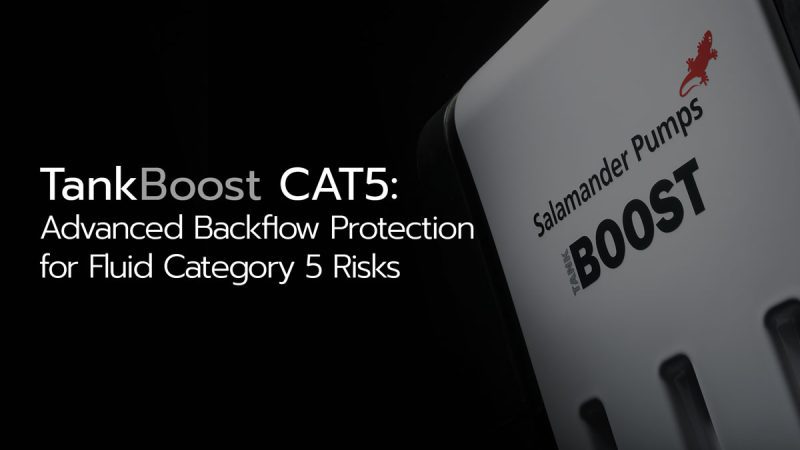
TankBoost CAT5: Advanced Backflow Protection for Fluid Category 5 Risks
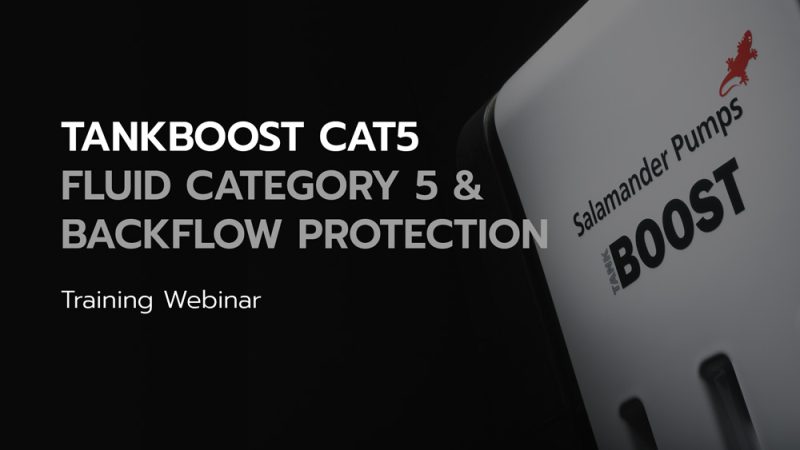
TankBoost CAT5 Webinar: Fluid Category 5 & Backflow Protection
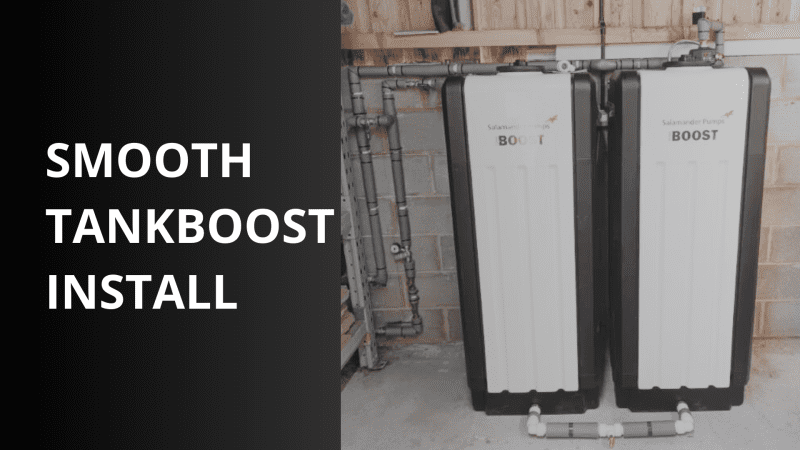
TankBoost CAT5 450L Installation by Woodhouse Plumbing
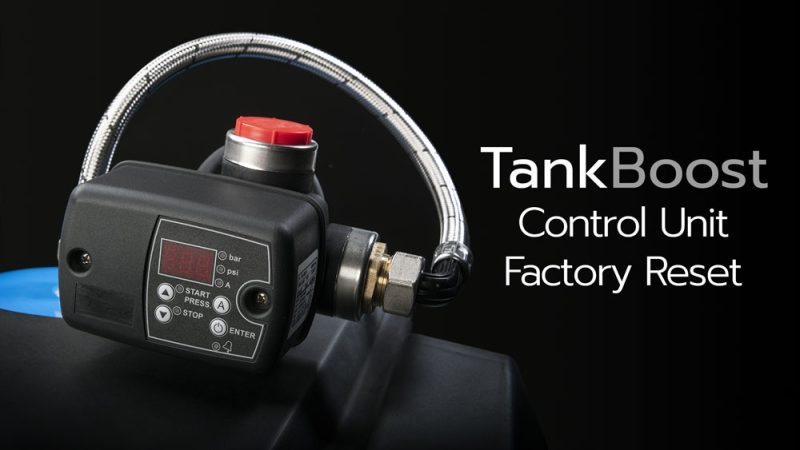
TankBoost | Control Unit Factory Reset
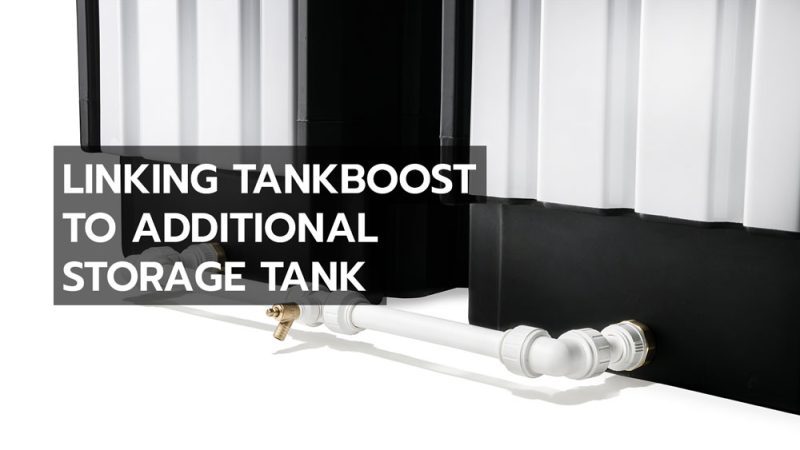
How to Link Two Water Storage Tanks
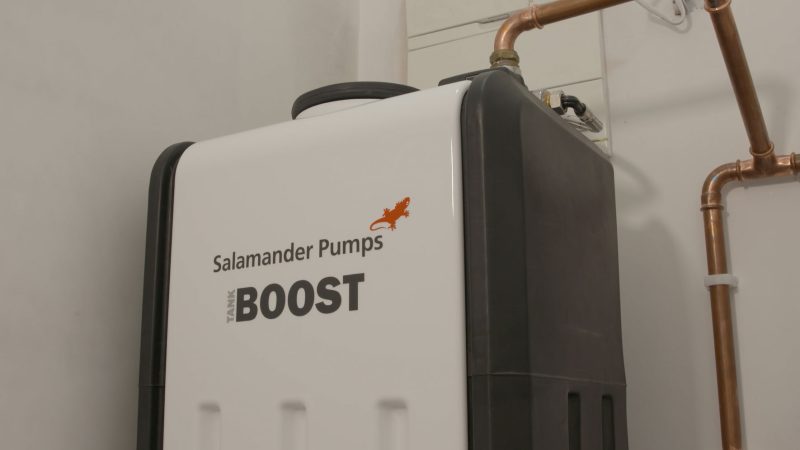
How to Install Mains Water Booster System – TankBoost Installation
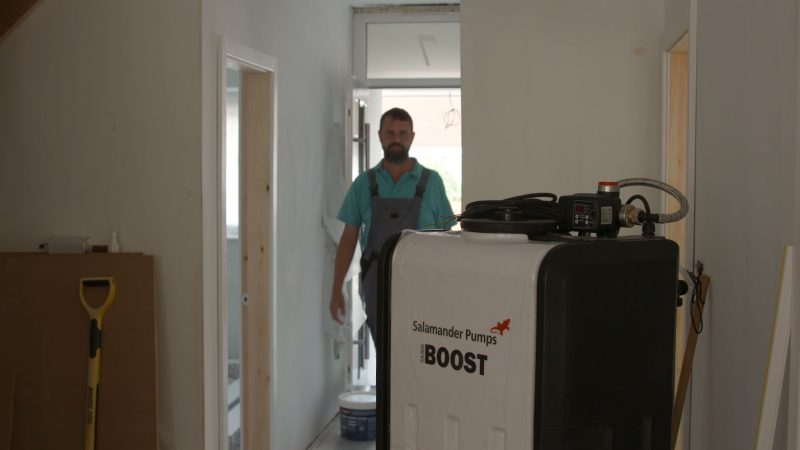
How to Increase Water Pressure and Flow in a Property with Multiple Outlets